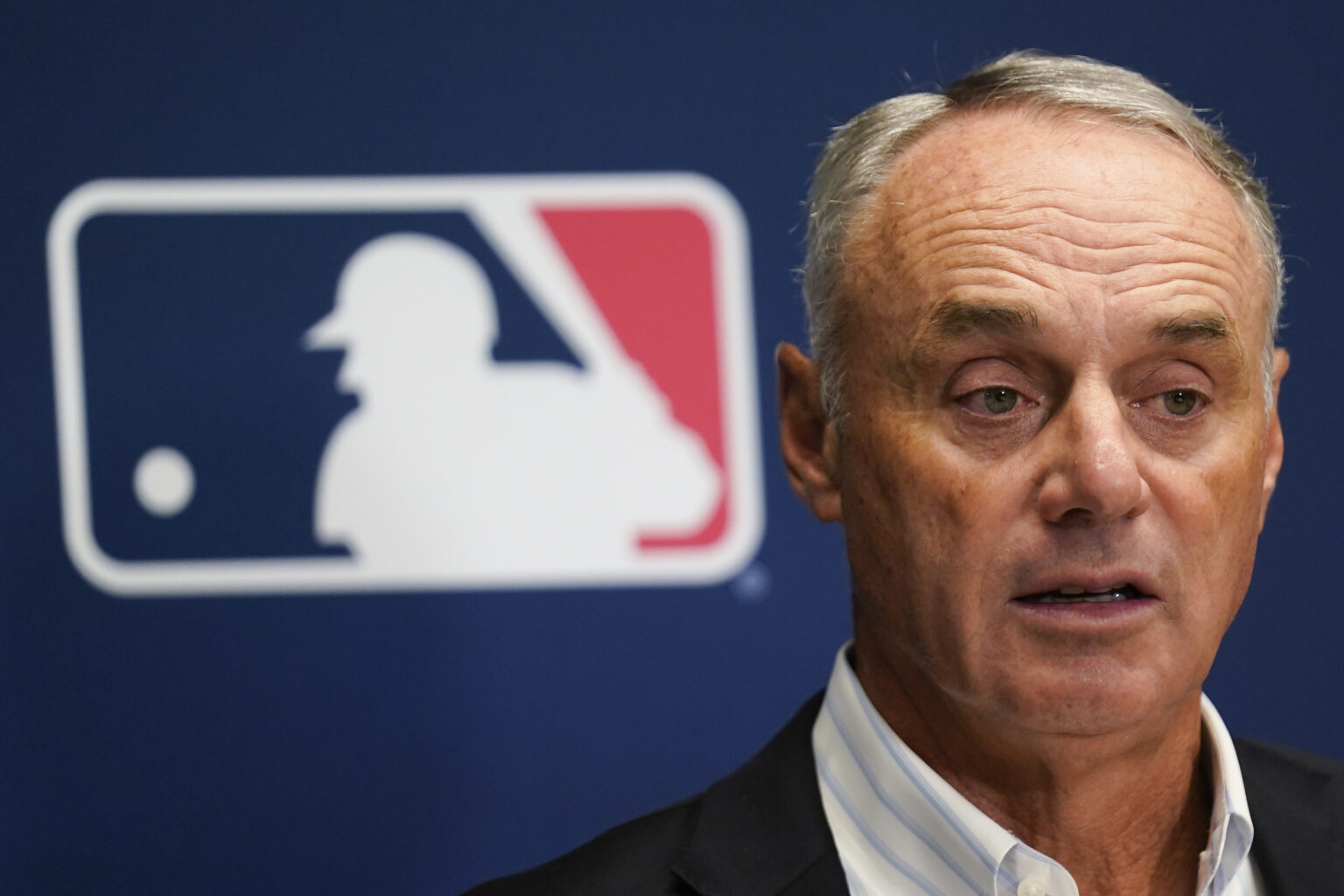MLB Commissioner Rob Manfred Clarifies His Stance on Pete Rose and Influences from Former President Trump
In a recent statement, Major League Baseball Commissioner Rob Manfred explicitly acknowledged the extent to which he considered former President Donald Trump’s opinions regarding Pete Rose’s eligibility for the Hall of Fame. During a Wednesday press conference, Manfred revealed that he “paid close attention” to Trump’s input on the matter, marking a more transparent approach than in previous communications.
Major Policy Shift: Reinstating Deceased Players on the Hall of Fame Ballot
Last month, Manfred announced a groundbreaking policy change: MLB players who are permanently banned from the sport would now be eligible for reinstatement posthumously. This decision notably reopened the door for Pete Rose, the legendary Cincinnati Reds player, who passed away last year at the age of 83. Rose, who was banned in 1989 amid allegations of betting on baseball-a claim he initially denied but later admitted-has long been a controversial figure in the sport’s history.
Political Influence and Private Discussions
In February, Donald Trump took to his social media platform, Truth Social, to declare his intention to issue a “full pardon” for Rose. The former president praised Rose as “a far superior player than most of those who have been inducted into the Baseball Hall of Fame,” fueling speculation about the potential for Rose’s reinstatement. Subsequently, in April, Manfred met with Trump at the White House. While the details of their conversation remained private initially, Manfred later confirmed that “one of the topics discussed was Pete Rose,” though he emphasized that he was “not going beyond that.”
Support from Political and Baseball Circles
During a press briefing at an MLB owners’ meeting, Manfred explained that Trump was “one of several voices supporting the idea that this was the right decision.” The commissioner, who is now in his 11th year leading MLB, expressed respect for the presidential office and acknowledged that he considered Trump’s advice seriously. However, he also noted that many other stakeholders and experts weighed in on the issue, highlighting the complexity of the decision-making process.
Path to Hall of Fame: The Process and Challenges
Despite the renewed attention, it remains uncertain whether Pete Rose will ultimately be inducted into the Hall of Fame or even appear on a ballot. The process involves a series of evaluations by the Hall of Fame’s Historical Overview Committee, which must first decide whether to include Rose’s name for consideration. If approved, the Classic Baseball Era Committee would then review his case, with a potential vote scheduled for December 2027. To be inducted, Rose would need at least 12 out of 16 votes.
Official Statements and Clarifications
In correspondence with Rose’s legal representatives, Manfred clarified that it is not within his authority to directly influence Rose’s Hall of Fame prospects. He stated, “I want to emphasize that it is not my responsibility or authority to comment on Mr. Rose’s potential induction.” Furthermore, Manfred reflected on the decision, suggesting that many who support it believe it is the “right choice,” even if others remain skeptical about Rose’s chances of enshrinement.
Historical Context and Broader Implications
Manfred’s recent ruling also extended eligibility to 16 other baseball figures from the past, including “Shoeless” Joe Jackson and seven members of the infamous 1919 Black Sox team, who were accused of intentionally losing the World Series. The Hall of Fame’s policy, established in 1991, disqualifies players on MLB’s permanent ineligibility list from induction. Jackson, a prolific hitter with a career batting average of .356, appeared on the Hall of Fame ballot in 1936 and 1946 but received only two votes each time, reflecting ongoing controversy surrounding his legacy.
Reconsidering Pete Rose’s Case
Manfred previously rejected Rose’s petition for reinstatement in 2015, citing a lack of credible evidence demonstrating a genuine change in character or a commitment to avoiding circumstances that led to his ban. In his letter, the commissioner emphasized that since Rose is no longer living, he cannot pose a threat to the integrity of the game. This perspective underscores the complex balance between honoring baseball’s history and maintaining the sport’s ethical standards.
As the debate continues, the baseball community remains divided over Rose’s potential Hall of Fame induction, with supporters citing his remarkable career achievements and detractors emphasizing his past transgressions. The evolving policies and high-profile endorsements signal a possible shift in how baseball honors its legends, especially those whose careers were marred by controversy.

